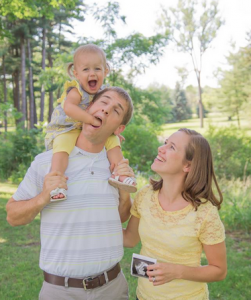We’re all about faith for life and don’t want to see students or youth leaders riding a roller coaster of emotions on a mission trip or faith forming experience. Here’s a great article by a well respected leader in the short term mission movement on fanning the flame of life change once you return home.
Most people like to play with fire. There’s something rewarding about burning long sticks until they’re short, melting things, roasting things, or just sitting and watching the flames. But if there is insufficient kindling, the fire will not ignite; and if there is too much wind, the flame will go out. Even so, keeping the flame alive is really not that tricky. By having the right resources and providing enough protection for the flame, it will keep burning (or even grow to a bonfire) and will give off light and warmth that people like to be near. If your experience in missions has allowed God to light a fire under you, or to fan the flame, then add more kindling, add more wood, and make sure you protect the fire from things that will put it out or slow it down.
“You are the light of the world. A city on a hill cannot be hidden. Neither do people light a lamp and put it under a bowl. Instead they put it on its stand, and it gives light to everyone in the house. In the same way, let your light shine before men, that they may see your good deeds and praise your Father in heaven” (Matthew 5:14-16).
There are many things you can do to keep the flame alive and to continue to be a LIGHT in the world. Here are some practical steps you can take to stay on track spiritually and in ministry.
L = Live Differently
Do you know what will keep your short-term mission from becoming just another mountain-top experience in your life? You. Only you can determine if you will continue the amazing journey of growing nearer to the Lord and of being a blessing to others. For this to happen, you must take on that responsibility and be intentional about your continuing journey.
“Therefore, I urge you, brothers, in view of God’s mercy, to offer your bodies as living sacrifices, holy and pleasing to God—this is your spiritual act of worship. Do no conform any longer to the pattern of this world, but be transformed by the renewing of your mind. Then you will be able to test and approve what God’s will is—his good, pleasing and perfect will” (Romans 12:1-2).
You’ve learned valuable lessons through Scripture and experience. Putting these lessons into practice may cost you something, but consider it in light of God’s mercy as a living sacrifice and as an act of worship to him.
I = Invest in the Mission Field
You can be a great encouragement to your ministry hosts by keeping in touch with them. Write letters, send birthday cards, pray for them, and join their financial support team.
G = Guard Your Mind
The things you allow into your mind have an impact on the way you live. A steady stream of less-than-wholesome television, movies, books, and music will affect your attitude and will rob you of the joy you have in Christ. Since you might not see any effect at first, it might feel as if you are “getting away with it.” However, in the long run you will find that it is like a slow leak. Eventually there will be a blowout, and you will find yourself out of commission spiritually. Remember the old saying, “garbage in, garbage out”? The Bible says, “Do not be deceived: God cannot be mocked. A man reaps what he sows” (Galatians 6:7).
An open mind is good. So is an open window. However, we put a screen on the window to keep the bugs out. Treat your mind like a window and screen what you allow in.
“Finally, brothers, whatever is true, whatever is noble, whatever is right, whatever is pure, whatever is lovely, whatever is admirable—if anything is excellent or praiseworthy—think about such things” (Philippians 4:8).
H = Hide God’s Word in Your Heart
Stay consistent in the study and memorization of the Bible. A diligent effort to know God’s Word better will result in a vibrant growing relationship with him. In addition, you can read inspirational missionary biographies that will remind you of the great things God can do with a life that is totally surrendered to him.
T = Take Risks—Stay Out of Your Comfort Zone
Decide right now that you are not just at the end of your short-term mission but actually at the beginning of a new ministry. Plan to live in a way that will continue to stretch you beyond the level of faith you now have. Put your trust in God. Seek to hear his voice and to obey and put into practice all that you have learned. Radical living encourages radical faith!
Do you realize that walking actually requires that you set yourself off balance? As you put one foot in front of the other, you are literally tipping forward—off balance. If you never took the risk of being off balance, you’d be stuck in one place. It’s like that in life and faith. The act of “stepping out” and getting a little off balance is the very act that allows you to move forward spiritually. Think about the big steps you took in deciding to go on this short-term mission (STM) and look how you’ve grown! So keep taking risks, following God’s wild imagination, and being in the place where you will only succeed if you trust in him and him alone.
Do you need some ideas on how to proceed? Want to know what it looks like to step out in faith? The rest of this article will help you take the next step in ministry.
Outreach and Evangelism
“Preach the Word; be prepared in season and out of season; correct, rebuke and encourage—with great patience and careful instruction” (2 Timothy 4:2).
“But in your hearts set apart Christ as Lord. Always be prepared to give an answer to everyone who asks you to give the reason for the hope that you have. But do this with gentleness and respect” (1 Peter 3:15).
We have a job to do here on earth. With love, patience, and respect, we are to speak up for what we believe and for who we are in Christ. Hopefully you have new found courage after your STM because you’ve spent time with people who are courageous and outspoken about their faith. Determine in your heart today that you will keep that fire burning in you and that outreach will become an ever-increasing part of your lifestyle.
When it comes to outreach and evangelism, there are two categories of Christians. The first category is those who are bound up in the activities and pressures of the day. They’re always on the backside of the things that they believe “happen to them.” They are wrapped up in their performance at work or school, running errands, fixing things, trying to stay in touch with people, but always too busy to do so. To them, life practically drowns out the fact that they are Christians. They are the ones who always say, “Spiritual things just never seem to come up at work.”
Then there is the category of Christians whose faith seems to just flow from life’s activities. They, too, live a hectic life, but somehow they have a fruitful influence in the lives of people around them. They are the ones who, because of their lifestyle, have people asking them about spiritual things.
There is a fundamental difference. To the first kind of Christian, Christianity has taken a back seat. To them, what they do is more important than their Christian faith. To the second kind of Christian, faith and responsibility to God are always in first place. Higher than a career. Higher than acceptance or fitting in. And higher than any circumstances. Ask yourself the following question by inserting your profession or life activity into the blank:
“Am I a __________ who happens to be a Christian or a Christian who happens to be a __________?”
Christians who “happen” to go to school or have a certain job will always place their faith and the responsibility to touch lives for Christ first. Their perspective is that God put them in that school, workplace, or situation because he wanted to affect the lives of those he has entrusted to their care. If you want to live a God-centered life, plan to live your life as a Christian first. If your relationship with Christ is your first concern and you are always looking to become more like him, your spiritual walk will deepen and grow.
This will add strength to your commitment to ministry, and he will use you to influence people all along the way.
Find Ministry in the Church, Community, and World
The continual, joyful giving of yourself for the sake of God’s kingdom purposes will help you maintain a close walk with him. Now that you are home, seek out opportunities to serve in the church, community, and world. “For even the Son of Man did not come to be served, but to serve, and to give his life as a ransom for many” (Mark 10:45).
Pray for discernment and eyes to see whatever God might be asking of you. It may be possible to join an existing ministry effort. But if it isn’t, don’t let a lack of opportunity slow you down—you may need to start something new. Jolaine started a weekly park outreach with a youth ministry team and it lasted for three years. Curtis started an evangelism committee at his church and it is still fruitful today. Darla inspired her church to reach out to the Japanese population in their city. Today there is a Japanese church within their church. Carl left his job and started a company that provides technical support to Christian organizations. As a result, the efforts of each organization are multiplied and there is a much greater impact for the kingdom.
Here are some other possibilities to spur on your creativity:
Ministry in the Church
- Help with the youth or children’s ministry
- Be a part of the worship team
- Volunteer to be on the missions committee
- Have a ministry of prayer
- Take part in visitation, neighborhood outreach, and evangelism
- Get involved in men’s or women’s ministry
- Become a Bible study leader or Sunday school teacher
Ministry in the Community
- Organize an annual neighborhood clean-up day
- Get involved with local leadership in schools and other public arenas
- Have a cross-cultural outreach to ethnic groups in your city or town
- Lead Bible studies
- Do a park outreach
- Help at a weekly soup kitchen, food bank, or clothes closet for the poor
- Get involved in campus outreach
- Host a kid’s club or Vacation Bible School
Ministry in the World
- Adopt a Bibleless people or an unreached people group
- Organize a prayer vigil on behalf of a ministry, mission, country, or church
- Support missionaries
- Organize future STMs
- Begin the process of becoming a mid-term or long-term missionary
Seek God and listen carefully as you choose the things you will be involved in now that you have returned home. Trust him for creativity, availability, and resources to do whatever he calls you to, wherever, and whenever.
From ShortTermMissions.com.



